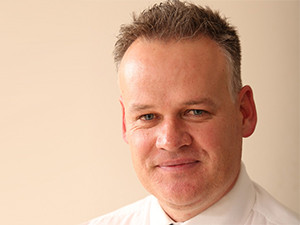
Metadata - a set of data that describes and gives information about other data - is playing a vital role in gathering information about epidemics such as HIV/Aids, Ebola and malaria in Africa.
It is becoming key to winning today's healthcare data challenge through the generation of statistics on the health and welfare of patients, says information management and social innovation company Hitachi Data Systems (HDS).
The last decade has seen huge advances in the amount of data routinely generated, collected and analysed within the healthcare industry, according to HDS. Models of treatment delivery are rapidly changing, and many of the decisions behind those changes are being driven by data.
"The drive now for medical practitioners is to understand as much about a patient as early in their life as possible, hopefully picking up warning signs of a serious illness at an early enough stage that treatment is far more simple (and less expensive) than if it had not been spotted until later," says Wayne Dick, Pre-Sales Manager for Sub-Saharan Africa at HDS.
This is achieved through an integrated medical system where patient information is saved by a practitioner onto a central data system which allows sharing of medical files between hospitals and clinics. This method is already being practised in the UK, the US and Europe.
According to the Government Gazette of South Africa, guidelines are currently under review to encourage the sharing of patient information between South African medical institutions to keep a consistent track record of patient health from an early age.
One example of metadata application is tracking disease movement through the use of mobile phones. Information generated through the tracking technology on people's mobile phones is linked to medical records to help analyse the spread of airborne diseases such as Ebola.
It is the ability of medical practitioners to understand this information and harness the power it yields that will make an impact, says Dick.
Understanding and quantifying human mobility in the geographical areas affected by an epidemic could make a crucial difference to containing it, however some developing countries still have a long way to go in making this method efficient, he adds.
According to a BBC report, during the Ebola outbreak in West Africa, Orange Telecom in Senegal handed over anonymised voice and text data from 150 000 mobile phones to a non-profit organisation, which was then able to draw up detailed maps of typical population movements in the region.
This method allowed authorities to see where the best places were to set up treatment centres, and more controversially, the most effective ways to restrict travel in an attempt to contain the disease, asserts Dick.
Another example of metadata application is through the use of HealthMap, a disease-monitoring Web site maintained by a team of researchers and epidemiologists at Boston Children's Hospital.
This site, which is a source of big data analytics, provides early detection and real-time surveillance on emerging health threats by aggregating and analysing data from multiple sources.
These sources include social media streams, online news stories, official reports, travel sites, and official sources, Dick continues.
IBM says government agencies may benefit from methodologies and technologies that enable large amounts of information to be gathered and analysed, then stored, shared, delivered and updated virtually, via the digital cloud.
A similar methodology was used in the fight against HIV/Aids in 2014, when IBM partnered with Yale University and the government of Ghana to eliminate mother-to-child transmission of HIV/Aids.
This process was done through harnessing cloud, mobile and big data technology to capture, store and retrieve patient-related data from a variety of locations, such as clinics, offices and remote sites.
Discussing current trends in SA, Dick says one of the biggest medical groups in sub-Saharan Africa has established a project which primarily focuses on building a secure information infrastructure and centralised file repository that would result in improved physician access to health records and reduced healthcare costs for patients.
"At the centrefold of this project is the Hitachi Clinical Repository (HCR) which is used as the foundation for its centralised electronic patient record system.
"HCR is able to form a multi-purpose archive that enables all clinical and nonclinical data to be stored, backed up, preserved and retrieved on a single platform".
The system also provides healthcare workers with direct access to a patient's medical record, regardless of their location within a similar branch.
Dick says personalised medicine is another hot topic in the healthcare field, allowing the tailoring of medicines to a person's unique genetic makeup.
He advises that innovative use of information is at the core of medical decision-making and healthcare organisations should leverage technology in order to improve patient-centred care.
Share